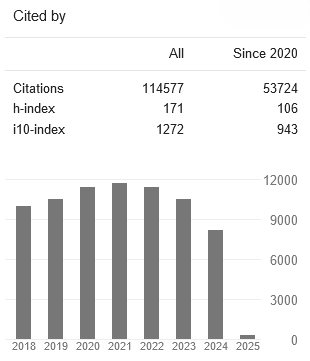Impact of Conflict Management Styles on Team Effectiveness in Textile Sector of Pakistan
- Shamaila Gull
- Habib-ur- Rehman
- Syeda Farheen Batul Zaidi
Abstract
The rationale of this study is to catch sight of causal relationship between conflict management styles and teameffectiveness and elucidate particular style’s impact on team effectiveness and give management insight into
particular style that can either stir up team’s performance or hamper its progress.Apart from examining
correlation between conflict management styles and team effectiveness, diverse factors like gender, designation,
income level and age were also scrutinized to unearth factors which ostensibly propel an individual to pursue a
specific conflict management style. Internationally devised questionnaire was deployed to ascertain numerical
score of both qualitative variables. Research was conducted on basis of random sampling. Total sample size of
research is 220. Respondents include employees working in various textile firms operating in Pakistan.
Statistical tests serving purpose of this study are Pearson’s Chi-Square Test, Yates Chi-Square Test, Crammer’s
coefficient of contingency, Pearson Coefficient of mean-squared contingency. Data analysis also includes
regression analysis of data, correlation coefficients and development of linear regression models. The final
analysis revealed moderate effect of conflict management style on team effectiveness. Collaborative and
Accommodating style of team effectiveness found to be highly positively associated with team effectiveness.
Competing style demonstrated insignificance relation to team effectiveness. Compromising style revealed
negative association while avoiding style exhibited high negative correlation with team effectiveness. Age,
Gender, Income level and Designation were not found to have an influence on particular conflict management
style being pursued by individuals.
- Full Text:
 PDF
PDF
- DOI:10.5539/ijbm.v7n3p219
Journal Metrics
Google-based Impact Factor (2023): 0.86
h-index(2023): 152
i10-index(2023): 1168

Index
- Academic Journals Database
- ACNP
- AIDEA list (Italian Academy of Business Administration)
- ANVUR (Italian National Agency for the Evaluation of Universities and Research Institutes)
- Berkeley Library
- CNKI Scholar
- COPAC
- EBSCOhost
- Electronic Journals Library
- Elektronische Zeitschriftenbibliothek (EZB)
- EuroPub Database
- Excellence in Research for Australia (ERA)
- Genamics JournalSeek
- GETIT@YALE (Yale University Library)
- IBZ Online
- JournalTOCs
- Library and Archives Canada
- LOCKSS
- MIAR
- National Library of Australia
- Norwegian Centre for Research Data (NSD)
- PKP Open Archives Harvester
- Publons
- Qualis/CAPES
- RePEc
- ROAD
- Scilit
- SHERPA/RoMEO
- Standard Periodical Directory
- Universe Digital Library
- UoS Library
- WorldCat
- ZBW-German National Library of Economics
Contact
- Stephen LeeEditorial Assistant
- ijbm@ccsenet.org
